Ditapis dengan
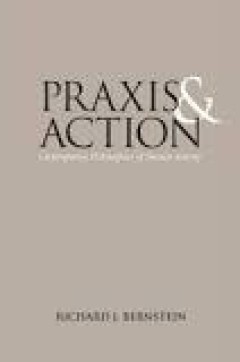
Praxis and Action: Contemporary Philosophies of Human Activity
This inquiry is concerned with the themes of praxis and action in four philosophic movements: Marxism, existentialism, pragmatism, and analytic philosophy. It is rare that these four movements are considered in a single inquiry, for there are profound differences of emphasis, focus, terminology, and approach represented by these styles of thought. Many philosophers believe that similarities amo…
- Edisi
- -
- ISBN/ISSN
- 0715606298
- Deskripsi Fisik
- xv + 344 pg.; 22 cm.
- Judul Seri
- -
- No. Panggil
- 128 BER p

Philosophy and the Future of Humanity
- Edisi
- -
- ISBN/ISSN
- -
- Deskripsi Fisik
- 96 pg.; 21,5 cm.
- Judul Seri
- -
- No. Panggil
- 128 PHI p
- Edisi
- -
- ISBN/ISSN
- -
- Deskripsi Fisik
- 96 pg.; 21,5 cm.
- Judul Seri
- -
- No. Panggil
- 128 PHI p

The Ellusive Self: Bassed On The Gifford Lectures, Delivered In The Universit…
- Edisi
- -
- ISBN/ISSN
- 0664244041
- Deskripsi Fisik
- viii + 202 pg.; 21,5 cm.
- Judul Seri
- -
- No. Panggil
- 126 LEW e
- Edisi
- -
- ISBN/ISSN
- 0664244041
- Deskripsi Fisik
- viii + 202 pg.; 21,5 cm.
- Judul Seri
- -
- No. Panggil
- 126 LEW e
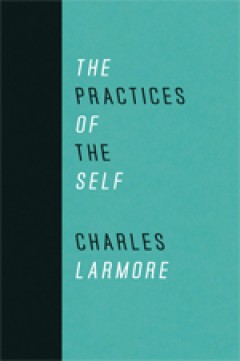
The Practices of the Self
What is the nature of the fundamental relation we have to ourselves that makes each of us a self? To answer this question, Charles Larmore develops a systematic theory of the self, challenging the widespread view that the self’s defining relation to itself is to have an immediate knowledge of its own thoughts. On the contrary, Larmore maintains, our essential relation to ourselves is practica…
- Edisi
- -
- ISBN/ISSN
- 9780226468877
- Deskripsi Fisik
- xvii + 201 pg.; 23,5 cm.
- Judul Seri
- -
- No. Panggil
- 126 LAR p
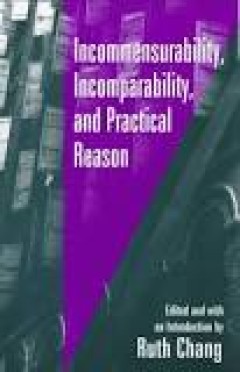
Incommensurability, Incomparability and Practical Reason
Can quite different values be rationally weighed against one another? Can the value of one thing always be ranked as greater than, equal to, or less than the value of something else? If the answer to these questions is no, then in what areas do we find commensurability and comparability unavailable? And what are the implications for moral and legal decision making? In this book, some of the sha…
- Edisi
- -
- ISBN/ISSN
- 0674447557
- Deskripsi Fisik
- viii + 303 pg.; 29 cm.
- Judul Seri
- -
- No. Panggil
- 121.4 INC i
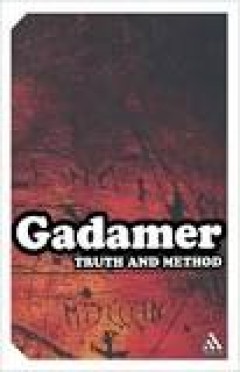
Truth and Method
Written in the 1960s, Truth and Method is Gadamer's magnum opus. An astonishing synthesis of literary criticism, philosophy, theology, the theory of law and classical scholarship, it is undoubtedly one of the most important texts in twentieth century philosophy. Looking behind the self-consciousness of science, he discusses the tense relationship between truth and methodology. In examining the …
- Edisi
- -
- ISBN/ISSN
- 082647697X
- Deskripsi Fisik
- xxxvi + 601 hlm.; 25,5 cm.
- Judul Seri
- -
- No. Panggil
- 121 GAD t

Phenomenology of Perception
- Edisi
- -
- ISBN/ISSN
- -
- Deskripsi Fisik
- xxi + 466 pg.;
- Judul Seri
- -
- No. Panggil
- 121 MER p
- Edisi
- -
- ISBN/ISSN
- -
- Deskripsi Fisik
- xxi + 466 pg.;
- Judul Seri
- -
- No. Panggil
- 121 MER p

Durkheim, Bernard and Epistemology.
- Edisi
- -
- ISBN/ISSN
- 07100003846
- Deskripsi Fisik
- vi + 212 pg.; 21,5 cm.
- Judul Seri
- -
- No. Panggil
- 121 HIR d
- Edisi
- -
- ISBN/ISSN
- 07100003846
- Deskripsi Fisik
- vi + 212 pg.; 21,5 cm.
- Judul Seri
- -
- No. Panggil
- 121 HIR d
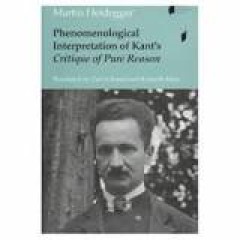
Phenomenological Interpretation of Kant's Critique of Pure Reason
The text of Martin Heidegger’s 1927–28 university lecture course on Emmanuel Kant’s Critique of Pure Reason presents a close interpretive reading of the first two parts of this masterpiece of modern philosophy. In this course, Heidegger continues the task he enunciated in Being and Time as the problem of dismatling the history of ontology, using temporality as a clue. Within this context …
- Edisi
- -
- ISBN/ISSN
- 0253332583
- Deskripsi Fisik
- xxi + 296 pg.; 24 cm.
- Judul Seri
- -
- No. Panggil
- 121 HEI p

Aesthetics, Method and Epistemology Volume 2
Few philosophers have had as strong an influence on the twentieth century as Michel Foucault. His work has affected the teaching of any number of disciplines and remains, twenty years after his death, critically important. This newly available edition is drawn from the complete collection of all of Foucault’s courses, articles, and interviews, and brings his most important work to a new gener…
- Edisi
- -
- ISBN/ISSN
- -
- Deskripsi Fisik
- xli + 486 pg.; 20 cm.
- Judul Seri
- -
- No. Panggil
- 111.8 FOU a 2
 Karya Umum
Karya Umum  Filsafat
Filsafat  Agama
Agama  Ilmu-ilmu Sosial
Ilmu-ilmu Sosial  Bahasa
Bahasa  Ilmu-ilmu Murni
Ilmu-ilmu Murni  Ilmu-ilmu Terapan
Ilmu-ilmu Terapan  Kesenian, Hiburan, dan Olahraga
Kesenian, Hiburan, dan Olahraga  Kesusastraan
Kesusastraan  Geografi dan Sejarah
Geografi dan Sejarah